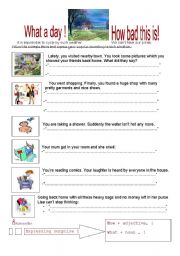
|
What a day! - expressing surprise
This worksheet provides real situations that would allow learners to express surprise. it could be a starter to some speaking activities, too.
Level: intermediate
Age: 14-17
Type: worksheet
Downloads: 63
|
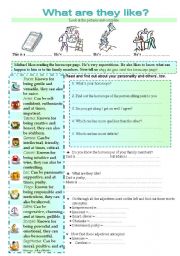
|
What are they like?
Students read and find out about their personality and their friends� They start with labelling pictures to help introduce the topic.
Level: intermediate
Age: 12-17
Type: worksheet
Downloads: 152
|
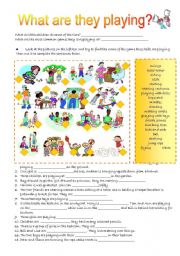
|
what are they playing? (21-08-08)
Name the games then complete the sentences.
There is another axercise about the use of adverbs of frequency.
Level: elementary
Age: 10-17
Type: worksheet
Downloads: 173
|
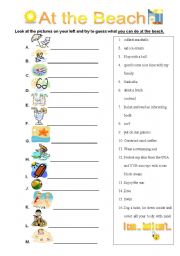
|
What can you do at the beach? - Ability and inability in the present.
The whole worksheet is built around what we can or can�t do in summer at the beach. It�s a matching activity in which pupils construct sentences with can / can�t and also in which they learn or review vocabulary related to summer / beach. A good follow-up activity would be a speaking task about what other things they can do (water sports,...) or wh...
Level: intermediate
Age: 12-17
Type: worksheet
Downloads: 102
|
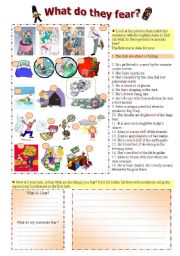
|
What do they fear?
Match sentences with the pictures. Write a list. Write a paragraph using newly acquired language but most of all they learn how to express fear.
Level: elementary
Age: 12-17
Type: worksheet
Downloads: 267
|
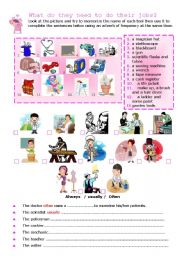
|
What do they need to do their jobs?(12-08-08)
Students will have fun matching tools to the persons who use them. they will use the simple present reviewing the third-person and their adverbs of frequency; without forgetting that they will recycle or learn the name of some tools
Level: intermediate
Age: 12-17
Type: worksheet
Downloads: 127
|
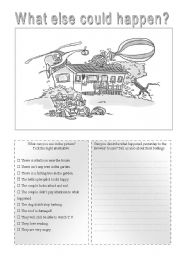
|
What else could happen?
Good for discussion and for writing. Could be used just for fun: an icebreaker.
Level: intermediate
Age: 12-17
Type: worksheet
Downloads: 20
|
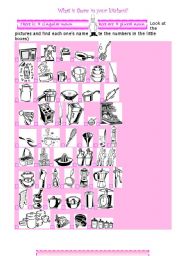
|
What is there in your kitchen? (13-08-08)
1) Match each picture with its name.
2) Write sentences using there is or there are.
The worksheet seems to be a mess but i dowloaded it -as a trial- and it�s fine.
Level: elementary
Age: 11-14
Type: worksheet
Downloads: 12
|
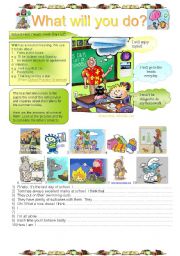
|
What will you do? (29-07-08)
Pupils will try to retain the rule while doing the writing exercise which is in a way guided but there is still room for creation if you delete the beginning of each sentence and let them write what they want since they�ll use the future tense to signal a prediction or an intention or simply a future action.
Level: elementary
Age: 12-17
Type: worksheet
Downloads: 266
|
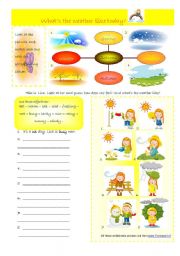
|
what�s the weather like today? 05-08-08
Young learners, I hope will like the pictures, and so will easily retain the seasons. That�s the first task matching to identify the seasons. The second is a writing where they have to describe the weather or what the person on the pic feels.
Level: elementary
Age: 11-14
Type: worksheet
Downloads: 226
|